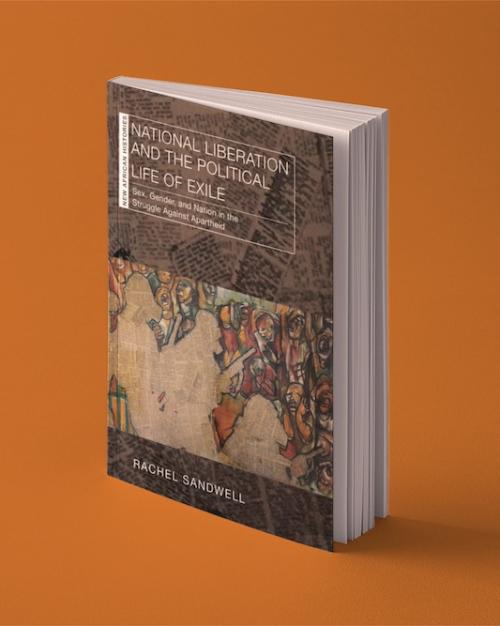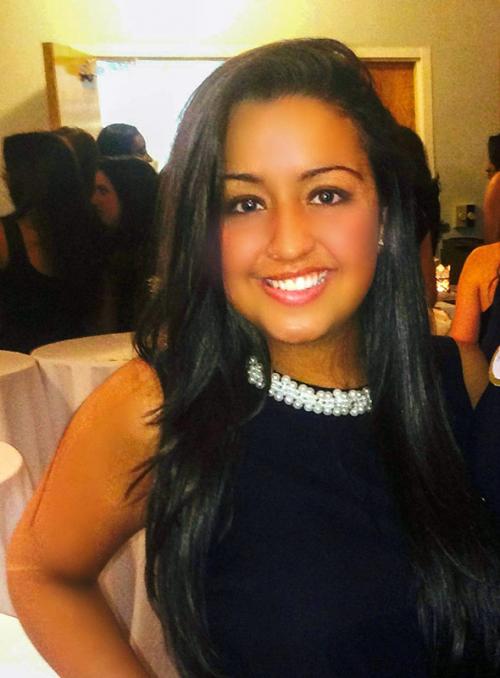Jessica Barragan '15
Major: Government & Sociology
Hometown: Deep River, CT
Why did you choose Cornell?
From the moment I stepped onto campus for the first time as an admitted high school senior, I knew that I could call Cornell my new home. While visiting during Cornell Days, it was immediately clear to me that Cornell was an academically rigorous, heavily research-oriented, and diverse institution. With its beautiful campus, rich history, and Ivy League status, I was immediately attracted to the endless opportunities Cornell seemed to offer its students. What really set Cornell apart to me, however, was its motto that “any person could find instruction in any study.” This afforded me the opportunity to study anything I wanted alongside some of the most intelligent and talented students from across the country and all over the world. Choosing to attend Cornell was one of the best decisions I have ever made, and it changed my life forever.
What is your main Cornell extracurricular activity -- why is it important to you?
Most of my campus involvement revolves around the Latino community. During my time at Cornell, I served as freshman representative, Vice President of Programming, and later Co-Chair of La Asociación Latina (LAL), which is the umbrella organization for most Latino organizations on campus. In addition, I also served as Captain of the Spanish Debate Team under the Cornell Forensics Society, Program Assistant for the Committee on U.S.-Latin American Relations (CUSLAR), English as a Second Language (ESL) tutor for the Friends of Farmworkers program, and one of ten student delegates who represented Cornell at the Latino Ivy League Conference at Columbia University. It was important for me to be involved in the Latino community in various capacities because it allowed me to explore my Latina identity and the challenges associated with being Latina/o in the U.S.
What was your most profound turning point while at Cornell?
Senior year was undoubtedly a turning point during my time at Cornell. While I had originally planned to go to law school immediately after graduation, I realized that I needed to take a gap year or two to explore other interests, travel, and ultimately give myself more time to be a more competitive applicant. I also wanted to dedicate my senior year to get more involved on campus, pursue a third minor in Spanish, and complete my honors thesis successfully. To this day, it is a decision I do not regret.
What, if any, Cornell-related scholarships/special financial benefits did you receive?
In high school, I received a letter from the Cornell Commitment Office that I was selected as a Meinig Family Cornell National Scholar. That program provided me with $4,000 a year to replace need-based student loans and $3,500 in a support account that I could use to pay for leadership or service-oriented opportunities. Thanks to the Meinig program, I was able to travel to Darien, Panama over spring break in March 2013 with the Cornell Global Law and Human Rights Brigades and spend a summer in Ithaca working for the Employment and Disability Institute in the ILR School.
What accomplishments/activities are you most proud of while at Cornell?
I am most proud of being a double major in Government and Sociology and a triple minor in Law and Society, Inequality Studies, and Spanish. While I may have sounded crazy to my friends who would continuously ask me why I was taking a total of 50 credits my senior year, my response to all of them was that I genuinely do love to learn and challenge myself. I have never taken my education at Cornell for granted, and I have made it one of my primary goals while studying here to take advantage of every opportunity that would allow me to grow as both a student and as a person. While my academics have always been my top priority, I am also glad that I was able to combine my interdisciplinary coursework with my campus leadership and work experience, which molded me into a more well-rounded person.
What, if any, research projects did you participate in at Cornell?
During my time at Cornell, I completed legal research for the Avon Global Center for Women in Justice, where I researched gender-based violence and human trafficking cases in Southeast Asia. I also served as a Research Assistant for Professor Joshua Chafetz at Cornell Law School to complete research on constitutional legal theory. In addition, my senior honors thesis whether Hispanic defendants in criminal jury trials experience adverse case outcomes, based on the racial and ethnic composition of the jury. My research thus combines my passion for social justice, goal of adding to the field of sociolegal studies, and primary research interests of exploring the treatment of racial and ethnic minorities in the criminal justice system.
What Cornell memory do you treasure the most?
It’s hard to pinpoint one specific Cornell memory that I treasure the most, so I’ll name a few. I spent two summers in Ithaca after my sophomore and junior year, and it was a very special for me because I had more time to appreciate the beauty Ithaca has to offer and make new friends that I wouldn’t have met otherwise. From sitting on the slope watching the sunset, to eating delicious sandwiches at CTB or at Regent, to taking trips to the gorges, my summers in Ithaca made my Cornell experience that much better.
In addition, during my senior year, I travelled with the Spanish Debate Team to the University of Miami to compete in the Pan-American University Debating Championships. After making it to the final round, Cornell won 1st place in the Spanish division and beat Spanish debate teams from all over the county and from Chile, Colombia, and Venezuela. It was an incredible moment and I could not have been more proud of our team!
Who or what influenced your Cornell education the most? How or why?
My Sociology advisor, Professor Erin York Cornwell, had an incredible influence on my Cornell education. She helped me to grow as a student with an interest in researching topics under Sociology of Law, where she both challenged me academically and supported me as I pursued my research objectives. Thanks to her direction and guidance, I was able to complete my senior honors thesis that combined my interest in exploring the treatment of Latinos in the criminal justice system and my desire to contribute to sociolegal studies.
However, the people who have influenced by Cornell education the most have been my peers. I am a firm believer that a college education should always extend beyond just the classroom. During my time at Cornell, I have always surrounded myself with some of the most inspiring and successful people on campus, each of whom have taught me something new about the world or about some of its most pressing issues. My education would not have been the same had it not been for my peers teaching me how to navigate myself within multiple diverse communities and to be more critically engaged.
How did any of your beliefs or interests change during your time at Cornell?
When I first arrived to Cornell, I thought that I was going to double major in Psychology and Spanish. However, I decided to take advantage of the flexibility the College of Arts and Sciences offered its students and enroll in classes I was interested in. I found that my interests were better suited in the Government and Sociology departments, and it was a decision that solidified my goal of combining those two disciplines into my own personalized program of study.
What do you value about your liberal arts education?
My liberal arts education provided me with a strong foundation and intellectual curiosity that I will take with me once I graduate. My diverse undergraduate curriculum gave me the ability to consider multiple perspectives and disciplines, to think in new and different ways, and to engage with the world in ways I never had before. What I value most, however, is the intellectual integrity and perseverance that Cornell has instilled in me.
What are your plans for next year; where do you see yourself in 10 years?
I have decided to take a gap year before I matriculate to law school. While I have not solidified my plans for next year, I know that I want to work in public policy or law-related fields in either New York City or Washington, D.C. In 10 years, I hope to have graduated from law school and be working for a law firm in California.




